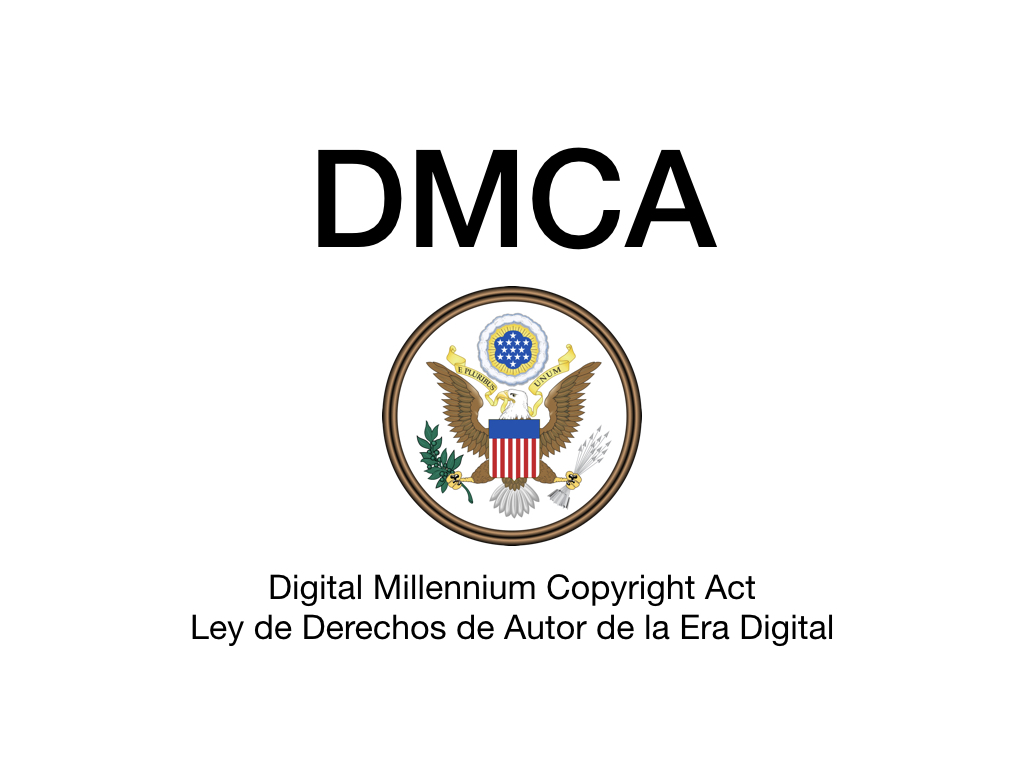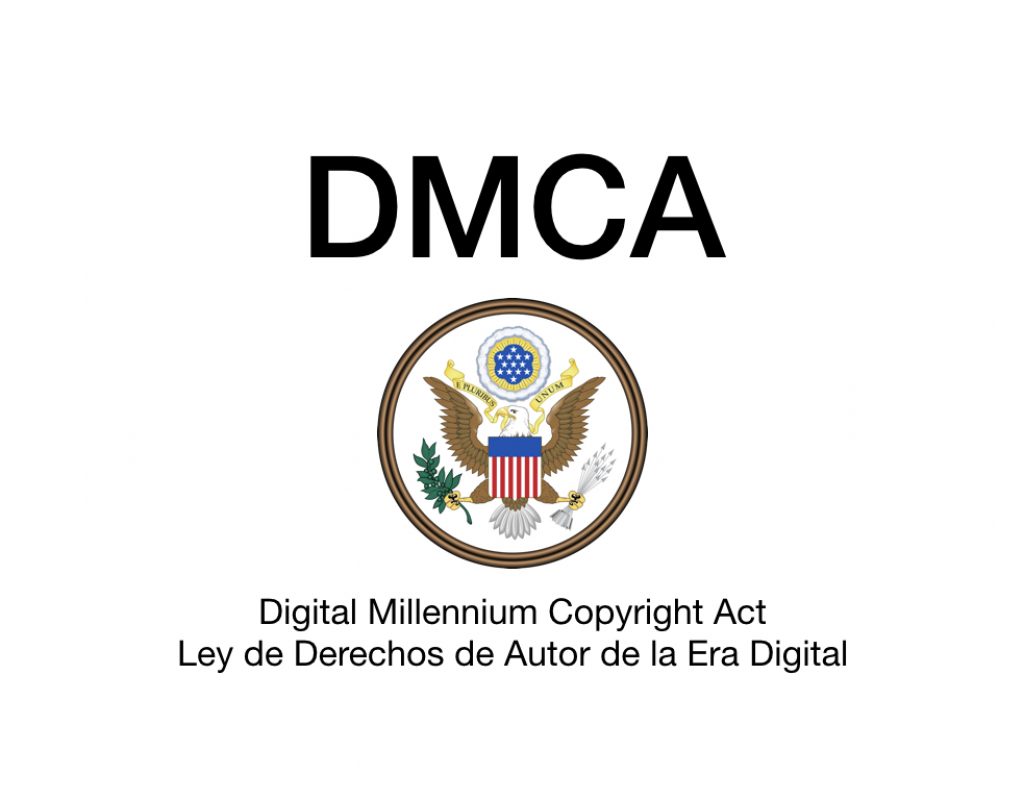
After watching a free webinar from attorney Gordon Firemark, I learned and sent my first DMCA takedown letters to certain web hosting companies. (DMCA stands for Digital Millennium Copyright Act of 1998 in the United States, and enjoys cooperation from the European Union since 2001.) I did this in response to an increasing number of pirate websites that are/were offering some of my books either free or at a lower price. Ahead you’ll learn: more about the DMCA; how I discovered about the websites that were/are pirating my books… and how you can do the same with your commercial content.
Summary from Wikipedia
The Digital Millennium Copyright Act (DMCA) is a 1998 United States copyright law that implements two 1996 treaties of the World Intellectual Property Organization (WIPO). It criminalizes production and dissemination of technology, devices, or services intended to circumvent measures that control access to copyrighted works (commonly known as digital rights management or DRM). It also criminalizes the act of circumventing an access control, whether or not there is actual infringement of copyright itself. In addition, the DMCA heightens the penalties for copyright infringement on the Internet. Passed on October 12, 1998, by a unanimous vote in the United States Senate and signed into law by President Bill Clinton on October 28, 1998, the DMCA amended Title 17 of the United States Code to extend the reach of copyright, while limiting the liability of the providers of online services for copyright infringement by their users.
The DMCA’s principal innovation in the field of copyright is the exemption from direct and indirect liability of Internet service providers and other intermediaries. This exemption was adopted by the European Union in the Electronic Commerce Directive 2000. The Copyright Directive 2001 implemented the 1996 WIPO Copyright Treaty in the EU.
Source here.
How I discovered the website pirate sites that are/were offering my books?
Years ago, I set up Google Alerts for my books and other projects, which is something I also do for many other things that interest me. In this case, I have a Google Alert for each of my book titles, each in its own language version, and set to notify me whatever the language of the source may be. That’s because I have directly written and published most of my books in English and in Castilian (the most widely used of the five official Spanish languages, not counting the unofficial ones), and one is in French, translated by SeveralTranslations.com of Montpellier, France.
You can get set up your own Google alerts free at Google.com/alerts.
Attorney Gordon Firemark’s presentation
Gordon Firemark is an attorney who recently presented his free live webinar Protect Your Online Business Without Spending A Fortune on Lawyers, which I attended. During his presentation, he talked about the importance of having a DMCA agent for any website that allows public comments, since having such an agent protects the website owner from liability for material subject to copyright which might be included in comments published by third parties.
Gordon Firemark’s advice about how to handle our own DMCA takedown letters
During that section of his live webinar mentioned above, I asked Gordon Firemark a relevant DMCA question: How to handle pirate websites that either sell my pirated ebooks cheaper or give them away free. He agreed with my opinion that we should only send one DMCA takedown letter per incident. If that fails, we should just consider the ones that don’t react as “free advertising”.
As far as how to do it, Gordon said that there are many DMCA takedown letter samples and instructions online free (I used this one). He said to modify it accordingly and then send it to the web hosting company in charge of the infringing website, according to the WhoIS directories. People who create websites and often register and transfer Internet domains (like me) are very familiar with using the WhoIS directories.
To clarify, the hosting company only has to inform its client to remove the infringing material, or remove it directly. As long as they do so in a reasonable amount of time, they are “off the hook”. If not, the the copyright owner can sue the web hosting and win, including associated fees. The DMCA protects the hosting company from liability, as long as it does the right think in a very reasonable amount of time.
(Re-)Subscribe for upcoming articles, reviews, radio shows, books and seminars/webinars
Stand by for upcoming articles, reviews, and books. Sign up to my free mailing list by clicking here. If you previously subscribed to my bulletins and no longer receive them, you must re-subscribe due to new compliance to GDPR. Most of my current books are at books.AllanTepper.com, and my personal website is AllanTepper.com. Also visit radio.AllanTepper.com.
Si deseas suscribirte (o volver a suscribirte) a mi lista en castellano, visita aquí. Si prefieres, puedes suscribirte a ambas listas (castellano e inglés).
Suscribe to his BeyondPodcasting show at BeyondPodasting.com.
Subscribe to his Tu radio global show at Turadioglobal.com.
Subscribe to his Tu salud secreta show at TuSaludSecreta.com.
Subscribe to his award-winning CapicúaFM show at CapicúaFM.com.
Save US$20 on Google Fi, my favorite mobile telephony and data service
Click here to save US$20 on Google Fi, which now works on iPhone and Android. With Google Fi (covered previously in several articles), there is no extra charge for data-only SIM cards on the same account, for up to 10 devices. You only pay for the total data, and data is free after 6 GB per month. So you could be using one Google FI SIM card on your primary phone, another in a tablet or secondary phone (or third, of fourth…).
FTC disclosure
No manufacturer is specifically paying Allan Tépper or TecnoTur LLC to write this article or the mentioned books. Some of the other manufacturers listed above have contracted Tépper and/or TecnoTur LLC to carry out consulting and/or translations/localizations/transcreations. Many of the manufacturers listed above have sent Allan Tépper review units. So far, none of the manufacturers listed above is/are sponsors of the TecnoTur , BeyondPodcasting CapicúaFM or TuRadioGlobal programs, although they are welcome to do so, and some are, may be (or may have been) sponsors of ProVideo Coalition magazine. Some links to third parties listed in this article and/or on this web page may indirectly benefit TecnoTur LLC via affiliate programs. Allan Tépper’s opinions are his own. Allan Tépper is not liable for misuse or misunderstanding of information he shares.
Copyright and use of this article
The articles contained in the TecnoTur channel in ProVideo Coalition magazine are copyright Allan Tépper/TecnoTur LLC, except where otherwise attributed. Unauthorized use is prohibited without prior approval, except for short quotes which link back to this page, which are encouraged!

